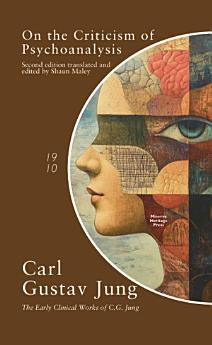On Criticism of Psychoanalysis
Rreth këtij libri elektronik
Here C.G. Jung discusses the different ways in which psychoanalysis has been received and understood by lay people and the educated alike. It emphasizes that psychoanalysis is often grasped without much difficulty, even though its evidence differs from that of the physical sciences. The article emphasizes the empirical basis of psychoanalysis and confronts the problem that critics often reject its findings without providing substantial alternative evidence. It notes that independent researchers have reached broadly similar conclusions to Freud, and that those who have experienced psychoanalytic treatment tend to affirm its validity.
Jung attributes this to entrenched scientific prejudices and differences in methodological approaches. A substantial part of the article is devoted to an extended critique by an individual who expresses strong revulsion towards Freudian theories, particularly those relating to child sexuality and anal eroticism. This critique is used to demonstrate the emotional and personal biases that can influence scientific criticism, and to highlight how psychoanalysis often provokes strong reactions when it challenges conventional beliefs about human nature and behavior.
Jung recognized that much of the criticism of psychoanalysis stemmed from misunderstanding or superficial engagement with its core ideas. He argued that Freud's insights, particularly those concerning the unconscious and its influence on behavior, were transformative but often misinterpreted by skeptics who lacked practical experience in the field. Jung emphasized the need to ground psychoanalytic theories in clinical observation rather than abstract speculation, asserting that only through consistent empirical work could the validity of psychoanalysis be maintained and expanded.
While defending psychoanalysis, Jung also pointed to areas that needed refinement and deeper exploration. He called for a flexible and evolving theoretical framework and cautioned against dogmatic adherence to any one interpretation. This openness reflected Jung's own trajectory toward the development of analytical psychology, where he would expand upon Freudian concepts to include archetypes, the collective unconscious, and symbolic analysis. Jung's essay thus not only defended Freud's foundational contributions, but also positioned psychoanalysis as a living science capable of growth and adaptation.










